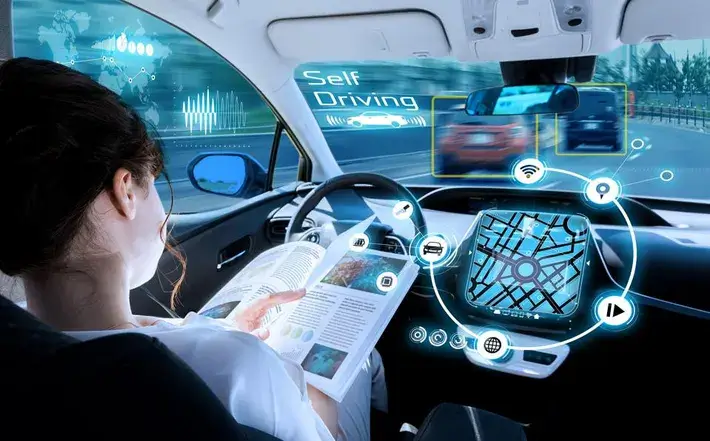Self-driving cars are rapidly evolving, and enhanced safety features are playing a pivotal role in fostering public trust and accelerating their adoption. The development and integration of advanced technologies are steadily addressing safety concerns, which have long been a significant barrier to widespread acceptance.
One of the primary factors driving this change is the continuous improvement in autonomous vehicle safety technology. These improvements encompass a range of features designed to mitigate risks and prevent accidents. Automated Emergency Braking (AEB) is becoming increasingly common, allowing vehicles to detect potential collisions and automatically apply the brakes, potentially preventing or minimizing the impact of accidents. Lane Keeping Assist systems help drivers stay within their lanes, reducing the risk of lane departure accidents, while Adaptive Cruise Control maintains a safe distance from the vehicle ahead, preventing rear-end collisions. Blind spot monitoring systems alert drivers to vehicles in their blind spots, further enhancing safety. Night vision capabilities and autonomous collision avoidance systems are also becoming more sophisticated, enabling self-driving cars to navigate safely in various challenging conditions.
These features rely on a suite of sophisticated sensors, including cameras, radar, ultrasound sensors, and LiDAR (light detection and ranging) to create a comprehensive, real-time understanding of the vehicle's surroundings. Data from these sensors are processed by advanced AI algorithms that can identify potential hazards and make quick decisions, often faster and more accurately than human drivers. Vehicle-to-Everything (V2X) communication is also emerging as a critical safety component, allowing vehicles to communicate with each other and with infrastructure, sharing vital information about traffic conditions, potential hazards, and optimal routes.
The potential safety benefits of autonomous vehicles are substantial. According to the National Highway Traffic Safety Administration (NHTSA), a significant percentage of automobile collisions are caused by human error. Autonomous vehicles, by eliminating human error, have the potential to drastically reduce accidents, injuries, and fatalities. Some studies suggest that although self-driving cars are more likely to be involved in accidents, they are considerably less injurious and fatal than human-operated vehicle crashes. For example, Waymo, in a study with Swiss Re, demonstrated an 88% reduction in property damage claims and a 92% reduction in bodily injury claims compared to human drivers.
Despite the technological advancements, public trust remains a crucial factor in the adoption of self-driving cars. Studies have indicated that consumer confidence in autonomous vehicles has fluctuated. A key challenge is that the public's perception of safety is often influenced by high-profile testing accidents, which can erode trust in the technology. Transparent communication about the capabilities and limitations of autonomous vehicles is essential to address public concerns and foster trust. Highlighting the potential societal benefits of AVs, such as improved mobility for underserved communities, can also significantly increase public support.
Efforts are underway to ensure that autonomous vehicles meet stringent safety standards before being deployed on public roads. Governments and regulatory bodies are developing legal and regulatory frameworks that govern the development, deployment, and operation of AVs, addressing issues such as liability in accidents, data privacy, cybersecurity, and ethical decision-making. The Automated Vehicles Act in the UK, for example, requires self-driving vehicles to achieve a level of safety at least as high as competent and careful human drivers and undergo rigorous safety tests.
Looking ahead, the future of self-driving cars hinges on continued technological advancements, rigorous safety testing, and effective communication with the public. As autonomous vehicles become safer and more reliable, public trust is expected to grow, paving the way for widespread adoption and transforming the transportation landscape. Pilot programs and commercial deployments are already underway, offering the public opportunities to experience the benefits of self-driving technology firsthand. These initiatives, combined with ongoing efforts to enhance safety and build trust, will play a crucial role in shaping the future of autonomous mobility.

















